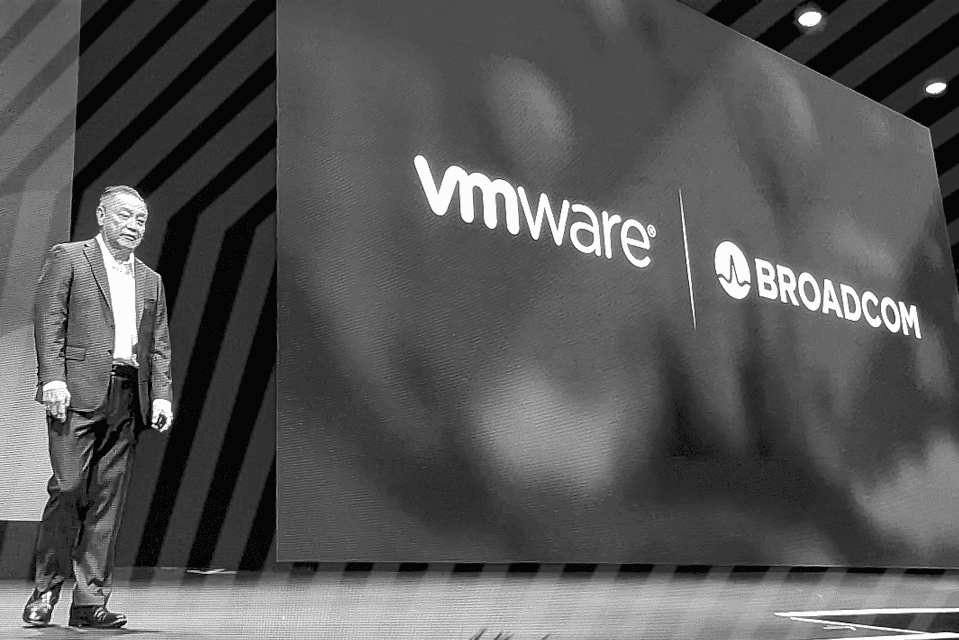
Broadcom’s VMWare acquisition sent shockwaves rippling through the IT industry when the $61 billion deal closed on November 22, 2023. News of the landmark computing deal lit up Reddit forums and Slack channels across America and around the globe. Everyone was scratching their heads, trying to digest what on its face seemed to be an unlikely matrimony of two major titans of tech. Broadcom, once a part of HP, has carved out a pretty healthy business in the semiconductor sector, controlling nearly 5% of that market last year. The Silicon Valley juggernaut is also a force to be reckoned with in the infrastructure software market, supplying data centers, broadband, wireless, storage, and industrial enterprises. VMWare comes at computing from a different perspective, creating virtualization software that helps companies squeeze the most ROI out of their hardware investments. It does this by segmenting a single computer’s hardware components – from processors to storage to memory – into multiple virtual machines (aka VMs), or virtual computers. So why would these two companies team up? And how will their alliance affect VMWare’s 500,000 global users? These are the questions that keep IT pros up at night.
Why the VMWare acquisition makes sense
If you want to take Hock Tan’s word for it, the VMWare acquisition is good news for IT teams looking to invest in “secure and resilient” public and hybrid cloud solutions, the Broadcom CEO assured users. Some analysts see the tie-up turbocharging adoption of multi-cloud networking environments, a market flirting with $8 billion in the next three years. It’s no secret that building an alternative to rival what hyperscalers’ public clouds offer is hardly a cakewalk, but Broadcom’s financial firepower will blow out VMWare’s R&D budget and help plug that gap. Tan laid it all out when Broadcom touted the VMWare acquisition, citing their “long track record of investing in the businesses we acquire to drive sustainable growth.” Let’s hope Broadcom is serious about investing in innovation to get VMWare up to snuff. It’ll take not just money but also a great deal of time and effort to fulfill the dream of letting enterprise customers float their assets between the cloud environment of their choosing, whether public, private or hybrid. After all, isn’t that what users want? The freedom to break away from clunky lock-in agreements and chart their own course in whichever cloud suits their needs?What the Acquisition Means for VMWare Users
Broadcom will have to do a few things to ensure the VMWare acquisition pays off, especially for those among the virtualization software giant’s half-million users who might be tempted to flee to the competition. IT leaders are waiting and watching to see if Broadcom’s backing will result in VMWare solving some of the biggest pain points in cloud computing. All they want is for their hardware and software to play nicely wherever they happen to live – in the cloud, in the data center or in a hybrid environment. They don’t want to re-work their applications whenever they move to a new cloud or get handcuffed by lock-in contracts that shackle them to a single cloud vendor. In a modern and evolving business landscape, enterprises need location-agnostic applications that perform consistently in the cloud and on premise. Broadcom’s VMWare acquisition should focus on helping clients build their own environment in the more than $80 billion private cloud market. They’ve lined up several professional services partners to meet these private cloud ambitions. Of course, the merger didn’t come without a few eyebrow-raising changes. Prices shot up despite Broadcom’s assurances to the contrary, and the company scrapped VMWare’s perpetual licensing model for a new subscription plan. Broadcom did a bit of housecleaning too, spinning out VMWare’s Carbon Black security software as a separate standalone unit under the new parent company.Now What?
VMWare is lucky to have a loyal following, so most users will stick it out with the software maker despite the new T&Cs. There also aren’t a ton of options out there that fully stack up against what Broadcom’s new baby has to offer. Microsoft’s sunsetting no-cost Hyper-V by the end of the decade, so that’s off the list. Open-source Proxmox VE plays in the same sandbox, but it lags on features and capabilities like memory and network setup. Though Nintex goes head-to-head with VMWare on workflow automation, it can’t match up in terms of size and scale. Of course, the usual suspects in enterprise software have all invested in the VM space. Oracle VM, Citrix Hypervisor, Google Compute Engine and Microsoft’s Azure Virtual Machines are just a handful of alternatives skittish VMWare users should have on their hit list. But the reality for IT executives is that change is hard (and expensive!). Now that the dust is settling on the VMWare acquisition, users should diagnose what they need to move forward and pinpoint their options on the market. We’re here to help you cut through the noise, so reach out today to learn how we can guide you through turbulent times and meet your virtual machine goals.Share
Resources + Updates